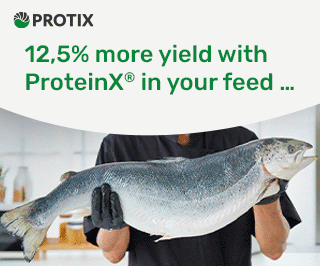Dagan: Poor management, not technology, to blame for RAS struggles.
Aquaculture veteran Yoav Dagan has issued a robust rebuttal to recent remarks by Atlantic Sapphire co-founder Johan Andreassen, who said the economics of land-based salmon farming no longer stack up in the United States.
In an open letter shared with SalmonBusiness, Dagan — founder and vice president of Israeli RAS technology firm AquaMaof — argues that the real issue lies not in the technology itself, but in how it’s applied.
RAS isn’t broken — management is: Read the full response from AquaMaof’s Yoav Dagan
“The US salmon production industry will not be developed using slightly flawed RAS technology for market fish production combined with less than optimum management protocols,” Dagan wrote. “Technology has demonstrated capabilities for feeding and water treatment capacity greater than the design capacity.”
Dagan says AquaMaof’s systems have been tested across more than 50 sites globally and claims that “optimum management protocols” can yield market-size Atlantic salmon in less than 21 months from first feeding. These protocols, he says, include customised smoltification, water chemistry, light regimes and feed plans that address common problems like off-flavour and early maturation.
He also challenged Andreassen’s construction cost estimates, arguing that well-designed systems can be built at $20–25/kg annual production capacity, with OPEX in the range of $3.50–$5.00/kg. “Many factors will influence CAPEX, such as site location and the number of engineering mistakes,” he said.
Dagan acknowledged the challenges posed by high interest rates but pointed to “aquaculture permitted and permittable locations for large facilities” in the US, some with very low electricity costs. He added that AquaMaof’s technology can operate on freshwater throughout the life cycle, broadening the potential for inland sites.
“Well-designed RAS of larger scale than 5,000 tonnes can have a low cost of production and compete with costs of net-pen salmon production — and RAS will not require air transportation from the farm to the market,” he said.
Dagan’s comments follow Andreassen’s widely read LinkedIn post, in which the Atlantic Sapphire founder warned that current CAPEX levels and return expectations made new land-based projects “a stretch,” and predicted the bulk of the tariff burden would fall on farmers.
While the debate continues, Dagan’s letter underscores the divide in the industry between RAS sceptics and those who still see land-based farming as the future of sustainable salmon production.
Andreassen: High CAPEX and interest rates have broken land-based salmon in the US



